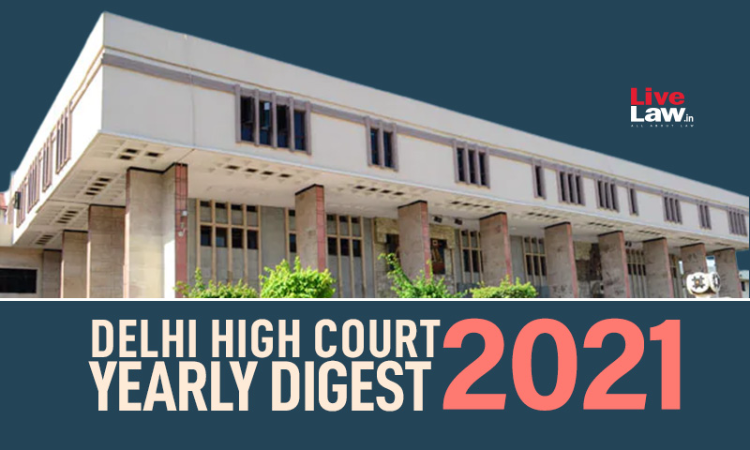Next Story
24 Dec 2021 4:56 PM IST
As the year 2021 is coming to an end, LiveLaw brings to you an yearly Round-up of important updates of the Delhi High Court. This yearly digest includes 180 orders and judgments, divided into 25 different subject heads.Criminal Law1. Commuting Life Sentence: Consent Of Central Govt. Mandatory U/S 435 CrPC, But Centre Can't Deny It Without Application Of Mind [Kartik Subramaniam v. Union...

